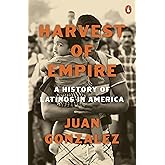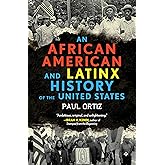
Amazon Prime Free Trial
FREE Delivery is available to Prime members. To join, select "Try Amazon Prime and start saving today with FREE Delivery" below the Add to Cart button and confirm your Prime free trial.
Amazon Prime members enjoy:- Cardmembers earn 5% Back at Amazon.com with a Prime Credit Card.
- Unlimited FREE Prime delivery
- Streaming of thousands of movies and TV shows with limited ads on Prime Video.
- A Kindle book to borrow for free each month - with no due dates
- Listen to over 2 million songs and hundreds of playlists
Important: Your credit card will NOT be charged when you start your free trial or if you cancel during the trial period. If you're happy with Amazon Prime, do nothing. At the end of the free trial, your membership will automatically upgrade to a monthly membership.
Buy new:
$39.00$39.00
Ships from: Amazon.com Sold by: Amazon.com
Save with Used - Very Good
$20.93$20.93
FREE delivery April 10 - 15
Ships from: ThriftBooks-Atlanta Sold by: ThriftBooks-Atlanta

Download the free Kindle app and start reading Kindle books instantly on your smartphone, tablet, or computer - no Kindle device required.
Read instantly on your browser with Kindle for Web.
Using your mobile phone camera - scan the code below and download the Kindle app.

Follow the author
OK
Hector P Garcia: Everyday Rhetoric and Mexican American Civil Rights Paperback – Illustrated, December 18, 2006
Purchase options and add-ons
Examining the Mexican American civil rights movement through the public rhetoric of a veteran activist
Héctor P. García: Everyday Rhetoric and Mexican American Civil Rights examines the transition of Mexican Americans from political and social marginalization to civic inclusion after World War II. Focusing on the public rhetoric of veteran rights activist and physician Dr. Héctor P. García, a Mexican immigrant who achieved unprecedented influence within the U.S. political system, author Michelle Hall Kells provides an important case study in the exercise of influence, the formation of civic identity, and the acquisition of social power among this underrepresented group.
As a major influence in national twentieth-century civil rights reform, García effectively operated between Anglo and Mexican American sociopolitical structures. The volume illustrates how García, a decorated World War II veteran and founder of the American GI Forum in Texas in 1948, successfully engendered a discourse that crossed geographical, political, and cultural borders, forming associations with the working poor as well as with prominent national figures such as John F. Kennedy and Lyndon B. Johnson. Through his rhetoric and action, García publicly revealed the plight of Mexican Americans, crossing class, regional, and racial lines to improve socioeconomic conditions for his people.
Héctor P. García, which is enhanced by sixteen illustrations, contributes to rhetorical, cultural, and historical studies and offers new scholarship establishing García’s role on the national front, effectively tracing Garcia’s legacy of resistance, the process of achieving enfranchisement, and the role of racism in the evolution from social marginalization to national influence.
- Print length328 pages
- LanguageEnglish
- PublisherSouthern Illinois University Press
- Publication dateDecember 18, 2006
- Dimensions6 x 0.8 x 9 inches
- ISBN-100809327295
- ISBN-13978-0809327294
Book recommendations, author interviews, editors' picks, and more. Read it now.
Frequently purchased items with fast delivery
Editorial Reviews
About the Author
Michelle Hall Kells, an assistant professor of English at the University of New Mexico, is the coeditor of two books, Attending to the Margins: Writing, Researching, and Teaching on the Front Lines and Latino/a Discourses: On Language, Identity, and Literacy Education.
Rolando Hinojosa-Smith, a professor of English at the University of Texas, is a prominent Chicano poet and novelist.
Product details
- Publisher : Southern Illinois University Press; First Edition (December 18, 2006)
- Language : English
- Paperback : 328 pages
- ISBN-10 : 0809327295
- ISBN-13 : 978-0809327294
- Item Weight : 15.2 ounces
- Dimensions : 6 x 0.8 x 9 inches
- Best Sellers Rank: #1,460,360 in Books (See Top 100 in Books)
- #1,154 in Rhetoric (Books)
- #1,609 in Social Activist Biographies
- #1,973 in Civil Rights & Liberties (Books)
- Customer Reviews:
About the author

Discover more of the author’s books, see similar authors, read book recommendations and more.
Customer reviews
- 5 star4 star3 star2 star1 star5 star86%14%0%0%0%86%
- 5 star4 star3 star2 star1 star4 star86%14%0%0%0%14%
- 5 star4 star3 star2 star1 star3 star86%14%0%0%0%0%
- 5 star4 star3 star2 star1 star2 star86%14%0%0%0%0%
- 5 star4 star3 star2 star1 star1 star86%14%0%0%0%0%
Customer Reviews, including Product Star Ratings help customers to learn more about the product and decide whether it is the right product for them.
To calculate the overall star rating and percentage breakdown by star, we don’t use a simple average. Instead, our system considers things like how recent a review is and if the reviewer bought the item on Amazon. It also analyzed reviews to verify trustworthiness.
Learn more how customers reviews work on AmazonTop reviews from the United States
There was a problem filtering reviews. Please reload the page.
- Reviewed in the United States on June 1, 2016A remarkable history of an individual who fought for Hispanic civil rights and veterans. Highly recommend this book! You will not be disappointed.
- Reviewed in the United States on April 18, 2016Dr. Garcia was the icon of the South Texas Latino community who fought tirelessly for his people--Mexican Americans.
- Reviewed in the United States on December 4, 2015VOICE AND COMMUNITY:
A Review of Hector P. Garcia: Everyday Rhetoric and Mexican American Civil Rights by
Michelle Hall Kells, Foreword by Rolando Hinojosa-Smith. Southern Illinois University, 2006, 291pp.
By Felipe de Ortego y Gasca
Scholar in Residence, Western New Mexico University; Professor Emeritus, Texas State University System—Sul Ross
The foreword to Hector P. Garcia: Everyday Rhetoric and Mexican American Civil Rights by Rolando Hinojosa-Smith accurately describes the world of Pre-World War II South Texas. The expectation is that Michelle Hall Kells text will shed light on the nooks and crannies of that world as it existed for Hector P. Garcia, founder of the American G.I. Forum—the Hispanic veteran’s alternative organization—and the history that led to its reputation as a Mexican American civil rights organization. I was Editor of the American G.I. Forum Newsletter from 1983-1985 when I worked in Washington, DC.
There is no doubt about the American G.I. Forum’s significance in the Mexican American civil rights struggle. I was among one of the early members of the American G.I. Forum in the early post-World War II years. I still wear my G.I. Forum cap on Veteran’s Day.
What gives me pause, however, about professor Kell’s Introduction to her work—which is essentially a study of civic rhetoric—is the undertone (subtext) embedded in the remark: “Dr. García gave voice to the fifty-year cacophony of American post-war revival through the rhetoric of civil rights reform. He built his rhetorical career by calling for the full inclusion of Mexican Americans in the civic life of the nation. Unlike separatist Chicano and African American activists who followed, García did not strive to spark an anti-American revolution” (2).
What is troubling here is the characterization of Chicano and African American activists as separatists whose intention was to spark an anti American revolution [emphasis mine], and that they “followed” García. This characterization tends to separate Hector P. García from the Mexican American pack of civil rights activists—of which he was a part—who forged the Mexican American civil rights agenda. This separation is a disservice to both García and the Mexican American civil rights activists since they were bonded in common cause and purpose.
Those civil rights activists were in attendance—as I was—at the Washington, DC presentation of the Medal of Freedom in 1984 to Hector P. García by President Reagan. He was the first Mexican American to receive that honor. Though Dr. García—“short-tempered, demanding, and even authoritarian”—may have differed at times with other Mexican American civil rights activists on civil rights tactics, he was very much a supporter of the collective philosophy of the Mexican American civil rights struggle.
Kell strays again when she asserts that “war was his [García’s] metaphor” (2). Actually “justice” was his metaphor, the same “Justice” that has been the goal of the Mexican American civil rights struggle. War is just a manifestation of civic engagement of which Mexican Americans have been a part of in the pursuit of “justice.”
Despite Kell’s posture in her Introduction, her text is informative. Her portrait of Hector P. García is deft and abundant, poignant and pivotal. García did indeed, as Kell posits, call attention to the “pigmentocracy” in American society. Importantly, what professor Kell accomplishes in her text is to broaden the aperture of racial struggles in the United States beyond the binary boundaries of black and white, though W.E.B. Du Bois did not exclude “Mexicans” among the oppressed in his address to the First Universal Race Congress of 1911.
There is no doubt that the Felix Longoria incident at Three Rivers, Texas, in 1949 propelled Hector P. García into the national spotlight. Thereafter, the American G.I. Forum’s interests focused on improving the plight of Mexican American World War II veterans, though that interest has enlarged to encompass the plight of Hispanic veterans of all wars and conflicts.














